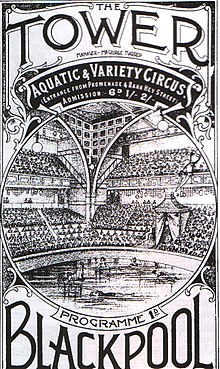1950 World Snooker Championship
Kingsley Kennerley won the qualifying competition and joined seven other players in the main draw.
For the fourth year running the final was contested by Fred Davis and Walter Donaldson.
The highest break of the tournament was 101 by Davis in frame 46 of his semi-final match against George Chenier.
Chenier also made a century break, 100, in his quarter-final defeat of Peter Mans.
[1] The sport was developed in the late 19th century by British Army soldiers stationed in India.
[7][8] Davis had also won the title every year from 1928 to 1940, after which the tournament was not held again until 1946 due to World War II.
[9]: 50–52 Fred Davis was the defending champion, having defeated Walter Donaldson 80–65 in the 1949 final.
[11] However, about half of the leading players, including Horace Lindrum, refused to enter because of the BACC's stipulation that each player in a match should provide a stake of 20 guineas, with the stakes awarded to the match winner.
[12][13] It was reported later that month that only four players – defending champion Fred Davis, Donaldson, Jim Lees and Sydney Lee – had entered; on 10 August, the BACC decided to reduce the stake fee to 10 guineas (with an entry fee of 3 guineas) and extend the closing date for entries to 1 September.
[14][15] BACC member Henry Markland was quoted as saying that the reason for the increase to 20 guineas had been "to discourage the entry of low-grade professionals who are, frankly, out of their class in the championship.
"[12] Donaldson's withdrawal from the tournament was reported on 30 August;[16] a BACC meeting on that day decided to remove the stake fee entirely, for the first time since the championship was established in 1927, and further extend the closing date for entries until 7 September.
[17] Donaldson said that as the Professional Billiard Players' Association demands had been met, he would now be participating.
Leng said that Lindrum would honour alternative bookings made rather than compete in the championship.
[25] Canadian George Chenier and South African Peter Mans refused to play at Scunthorpe unless they received an acceptable financial guarantee; they agreed to the BACC's offer of £150.
[34][35] Davis added seven of the ten dead frames on the concluding day to finish 43–28 up.
[34] The players were level at 9–9, 12–12 and 18–18,[37][34] but Brown led 26–22 after taking five of the six frames of the second session on the fourth day.
[10] The Billiard Player magazine attributed Donaldson's success to his strong safety play and a below-par performance from Davis.
[9] A reporter for the Manchester Evening News commented about the final that, "So afraid were Fred Davis and Walter Donaldson ... of making any rash move which would cost them a frame that play was painfully slow at times.
